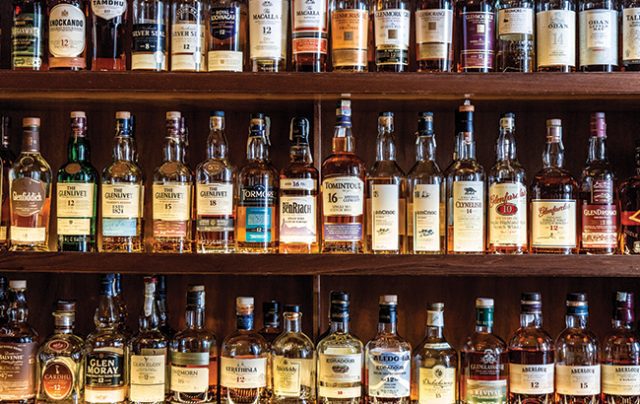Scotland to increase MUP
Minimum unit pricing (MUP) in Scotland will increase from 50p to 65p following an announcement from deputy first minister Shona Robison yesterday (8 February).

The MUP legislation was initially introduced in 2018 and was due to expire on 30 April 2024. In September 2023, the Scottish government launched a consultation on increasing it to 65p.
Parliament will now vote on the policy and, if it agrees, the increase will take effect from 30 September 2024.
Robison said: “Research commended by internationally renowned public health experts estimated that our world-leading MUP policy has saved hundreds of lives, likely averted hundreds of alcohol-attributable hospital admissions and contributed to reducing health inequalities.
“Despite this progress, deaths caused specifically by alcohol rose last year – and my sympathy goes out to all those who have lost a loved one.
“We believe the proposals, which are supported by Scotland’s chief medical officer, strike a reasonable balance between public health benefits and any effects on the alcoholic drinks market and impact on consumers.
“Evidence suggests there has not been a significant impact on business and industry as a whole.
“Alongside MUP, we will continue to invest in treatment and a wide range of other measures, including funding for Alcohol and Drug Partnerships which rose to £112 million (US$141m) in 2023-24.”
The trade reacts
The Scottish Licensed Trade Association (SLTA) welcomed the increase. Managing director Colin Wilkinson said: “Scotland has long had a challenging relationship with alcohol and the link between low prices and increased consumption is clear.
“The sale of cheap alcohol has been a major factor in many people developing alcohol-related problems, so a proportionate increase in MUP makes absolute sense.
“Pubs and bars provide a controlled and safe environment for people drinking alcohol, whereas people drinking at home are not necessarily aware of how much they are drinking.
“The retention of and the proposed increase in the level of MUP will help avoid a return to the days of deep discounting and irresponsible promotions, which were particularly seen in supermarkets where alcohol, on some occasions, was being sold cheaper than bottled water and below cost as a loss-leader.
“The 50p level was approved in the Scottish parliament nearly 12 years ago, so we believe that with rises in inflation since then, it is time to increase MUP from 30 September.”
However other trade groups were against the move.
A spokesperson for the Scotch Whisky Association (SWA) said: “Alcohol misuse is complex but is a challenge that must be addressed. The Scotch whisky industry is committed to working in partnership with the Scottish government to achieve that shared goal.
“The efficacy of MUP as a policy to reduce harmful drinking has yet to be established. In spite of this, an increase of the minimum unit price of alcohol in Scotland from 50p to 65p will push up the minimum price of Scotch whisky from £14 (U$17.65) to £18.20 (US$23) – a significant increase of 30% that will impact consumers across Scotland, the vast majority of whom drink responsibly, at a time when they are already grappling with rising costs.”
Trade union GMB Scotland urged the government to urgently reconsider its plans and warned the policy is risking jobs and investment while its health benefits remain unproven.
David Hume, GMB Scotland organiser in the drinks industry, said: “The case for continuing with MUP, never mind increasing it, gets weaker with every piece of research published. Ministers must be guided by reliable research and data – not wishful thinking and good intentions.
“The potential consequences of this policy are too damaging for it to be justified with anecdote, hunches and hope.
“Five years ago, we were told this policy would help save lives of problem drinkers. Now we are told it is about curbing the intake of moderate drinkers but there is no substantive evidence to suggest it does either.
“The health benefits of this policy remain theoretical at best, but the risk of undermining one of Scotland’s most successful industries – threatening investment and jobs – could not be more real.
“It is reckless to consider extending this policy and increasing MUP when there is no substantive evidence that it does any good.”
The union polled its members last year and found that 63% believed MUP should be scrapped.
Many outside of the spirits industry have also condemned the move, with Christopher Snowdon, head of lifestyle economics at the Institute of Economic Affairs, saying: “With deaths from alcohol abuse at a 14-year high, it is obvious that MUP is not an evidence-based policy.
“The official evaluation overwhelmingly showed that the policy has failed, but it is a political project and the Scottish government was always going to stick with it come what may.
“Scottish drinkers have paid dearly for the folly of MUP and they will now have to pay even more.”
The Spirits Business previously spoke to those in the industry about their views on the policy.
France is considering introducing an MUP policy.
Related news
Council approves Auchenbowie whisky distillery
